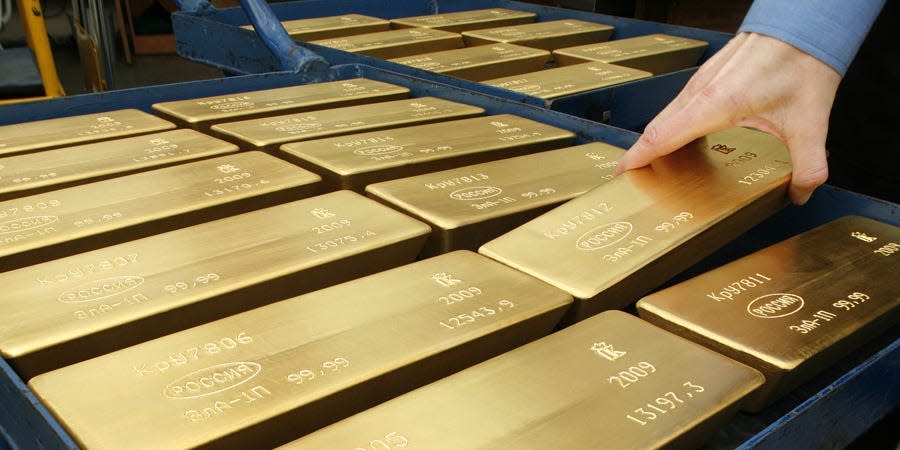De-dollarization efforts see China expand its gold reserves for 6 straight months

China's gold reserves grew for the sixth straight month in April, adding over 8 tons.
Central bank purchases of gold continue to be at historically elevated levels.
Gold reserves help banks move away from the dollar, and diversify amid high inflation.
China's gold reserves grew for the sixth consecutive month in April, as the country added another 8.09 tons to its expanding stockpile.
The addition brings China's total gold holdings to 2,076 tons, according to data from the State Administration of Foreign Exchange. It purchased 120 tons in the five months ahead of April.
The expansion trend is on par with other foreign central banks, many of which have been boosting gold purchases to minimize reliance on the US dollar.
Internationally, banks added 228.4 tons of gold in the first quarter, a moderation from previous months but still a historic jump from prior years. Among the largest buyers, China ranked second, a World Gold Council report shows.
This comes amid signs that countries are growing wary of the dollar, after Western sanctions cut off Russia from its foreign exchange reserves after it invaded Ukraine. Recent weakening in the greenback and high inflation may also be adding pressure to diversify.
Geo-political risks could also be incentivizing China to turn to gold, as its relationship with the US has turned tense over issues such as Taiwan.
In addition, China has been at the forefront of efforts to establish an alternative currency in global trade, pushing for more use of its yuan through bilateral trade agreements.
Meanwhile, State Administration of Foreign Exchange also reported that the country's April foreign currency reserves increased by $20.9 billion from March, hitting $3.2 trillion.
Read the original article on Business Insider

 Yahoo Finance
Yahoo Finance 